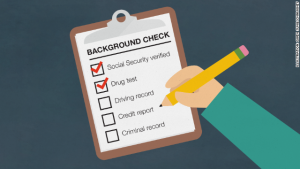If you ask Arabic language learners what they fear most when trying to learn Arabic language skills, most of them will probably tell you they fear speaking the most.
The reason for this is quite simple: whether they learn Arabic online in a virtual classroom or in an actual classroom of an educational institution, they are probably going to spend the largest amount of classroom time reading, reviewing homework, and listening to the teacher lecture. In fact, only about 20% of the classroom time will be set aside for speaking. This means if you have 20 students in the class, each student will get only one minute of time to practice speaking. That’s not a lot of time for practicing your speaking in a typical two-hour class of 120 minutes.
Naturally, this means that, while your Arabic writing, listening, and reading skills will improve greatly, you Arabic speaking skills will probably improve very slowly.
The reality of all of this is that, if you want to be a better speaker, you’re going to have to put more time into it on your own, outside of the classroom. But don’t worry if you don’t know where to start. That’s why we’re here with these five tips on improving your Arabic speaking skills to get you started:
- Read Aloud
Whenever you’re alone and reading something, try reading it aloud. Then read it aloud again, practicing your Arabic pronunciation and picking up your tempo as you read. Then do it again and again and again until it starts to sound more natural. Don’t worry about being perfect. Not only will this help you to learn to read Arabic, but At the very least, you’ll also be training your mouth and diaphragm muscles to pronounce those Arabic letters and sounds that are unfamiliar to you at first, but that will become more familiar to you the more you read out loud.
- Take Advice from the Boy Scouts
You don’t have to be a Boy Scout to follow their motto: “Be prepared.” Think about what you want to say ahead of time and you’ll never be at a loss of what to say. This will help you practice your newly learned words and phrases even if you’re just learning Arabic for beginners. Practice them in the shower, in the car, in your head or out loud. Be prepared with what you will say to the taxi driver, to the security guard, and even the guy at the convenience store. The more you practice and have these little conversations, the more confident you’ll be when moving on to longer conversations.
- You and Your Shadow
Most Arabic lessons start with some sort of dialogue, and more often than not, the lessons that follow it have some kind of “repeat after me” exercise where the speaker will say something and you’ll have to repeat it. This is called “shadowing”. Most students just sit there and stare at the teacher during the shadowing part out of shyness or fear of making mistakes; however you don’t have to be shy. So, go ahead and repeat these dialogues. If you make a mistake, don’t worry so much about that either because your instructor can help you overcome it and later you can both laugh at it.
You can do the same things when watching an Arabic film or television series because this shadowing technique will, like we mentioned above in the first tip, help you make sounds your mouth just isn’t used to producing, so practice this technique often.. The next thing you know, you’ll be speaking like a native much faster than you expected. (An added benefit will be that you can learn Egyptian Arabic, because most Arab mass media such as movies, plays, and music is in Egyptian Arabic, making it the most popular and well-known of all of the Arabic dialects.)
- Repeat and Repeat (and Repeat again)
By now you should see repetition is the key to being a great Arabic speaker and we cannot stress this enough. Most studentshave an unrealistic expectation of magically speaking Arabic on the way out the door the first night. As a result of this expectation, they never review.
So, if you want to speak better, faster, and have more confidence in your speaking skills, then repeat and repeat and repeat again. As the old saying goes, “Practice makes perfect.” So, practice, practice, practice, and you’ll be pretty close to perfect in no time at all.
- Break an Egg or Two
Fact: You’re going to make mistakes. Another fact: You’re going to hit obstacles once in awhile. Still another fact: Everybody who has ever studied Arabic has gone through exactly what you’re going through. However, with perseverance, practice, a positive attitude, more practice, and knowing all of these facts beforehand, you’ll be able to overcome those hurdles just like every other Arabic language learner before you. So, stick to it because while you’re practicing making your perfect Arabic language omelet, you’re going to break a few eggs first.
These are just a few tips to get you started. Try them out and see what works best for you.
If you’d like more tips on learning the Arabic language or want to learn more about Arab culture, visit us at kaleela.com and download the Kaleela Arabic language learning app to your IOS or Android device. Out of all the Arabic language learning apps available, it really is the best way to learn Arabic starting today!








